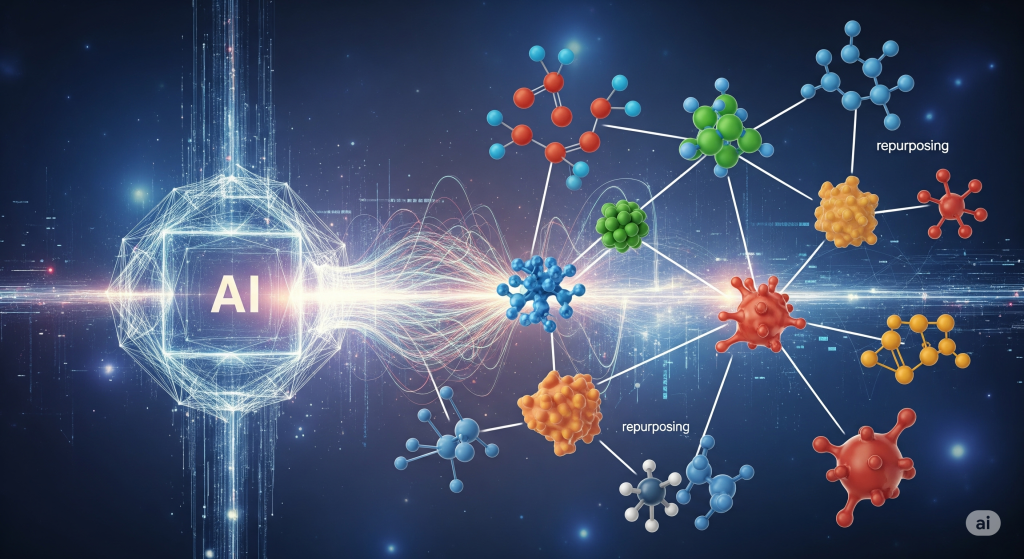The pharmaceutical industry is a landscape of high stakes and lengthy timelines. Developing a new drug from initial discovery to market can take over a decade and cost billions of dollars. In this context, the concept of drug repurposing – finding new therapeutic uses for existing, approved drugs – offers a compelling alternative. And at the forefront of this innovative approach is Artificial Intelligence (AI), breathing new life into old medicines and promising to revolutionize drug discovery and development.
A Swift Response: How COVID-19 Accelerated AI Drug Repurposing
The urgency of the COVID-19 pandemic served as a powerful catalyst for the adoption of AI in drug repurposing. With the world desperately seeking treatments for a novel virus, traditional drug development timelines were simply too long. AI algorithms proved invaluable in rapidly screening vast libraries of existing drugs, analyzing their known mechanisms of action and potential interactions with the SARS-CoV-2 virus. This accelerated the identification of promising candidates for clinical trials, demonstrating the speed and efficiency that AI can bring to drug discovery in times of crisis.
From Diabetes to Antivirals: Compelling Case Studies
Several notable examples highlight the success of AI-driven drug repurposing:
- Metformin: Primarily used to treat type 2 diabetes, AI analysis has suggested potential applications for Metformin in treating certain cancers and age-related diseases. Its well-established safety profile makes it an attractive candidate for further investigation in these new areas.
- Remdesivir: Initially developed to treat Ebola, Remdesivir emerged as one of the early antiviral drugs used against COVID-19. AI played a role in analyzing its antiviral properties and predicting its potential efficacy against the novel coronavirus, speeding up its evaluation in clinical trials.
These are just a few examples, and ongoing research continues to uncover new possibilities for existing drugs across a wide range of therapeutic areas.
The Power of Data: Databases and Predictive Modeling in Drug Repurposing
AI’s ability to identify new uses for old drugs relies heavily on the availability of large, comprehensive datasets. These include information on drug structures, mechanisms of action, pharmacological properties, and clinical trial outcomes. AI algorithms, particularly machine learning models, can analyze these vast datasets to identify hidden connections and predict potential new therapeutic applications.
Predictive modeling plays a crucial role in this process. By training AI models on existing drug data and disease biology, researchers can create virtual screening platforms that can rapidly assess the likelihood of a drug being effective against a different disease. This in silico approach significantly reduces the time and cost associated with traditional laboratory-based screening methods, allowing researchers to prioritize the most promising candidates for further investigation.

A Brighter Future for Drug Discovery
AI-driven drug repurposing offers a transformative approach to pharmaceutical innovation. By leveraging the wealth of knowledge surrounding existing drugs, we can significantly accelerate the discovery of new treatments, reduce development costs, and ultimately bring life-saving therapies to patients faster. As AI continues to advance and our understanding of disease biology deepens, the potential for unlocking new uses for old medicines will only continue to grow, promising a more efficient and agile future for drug development.

Leave a Reply